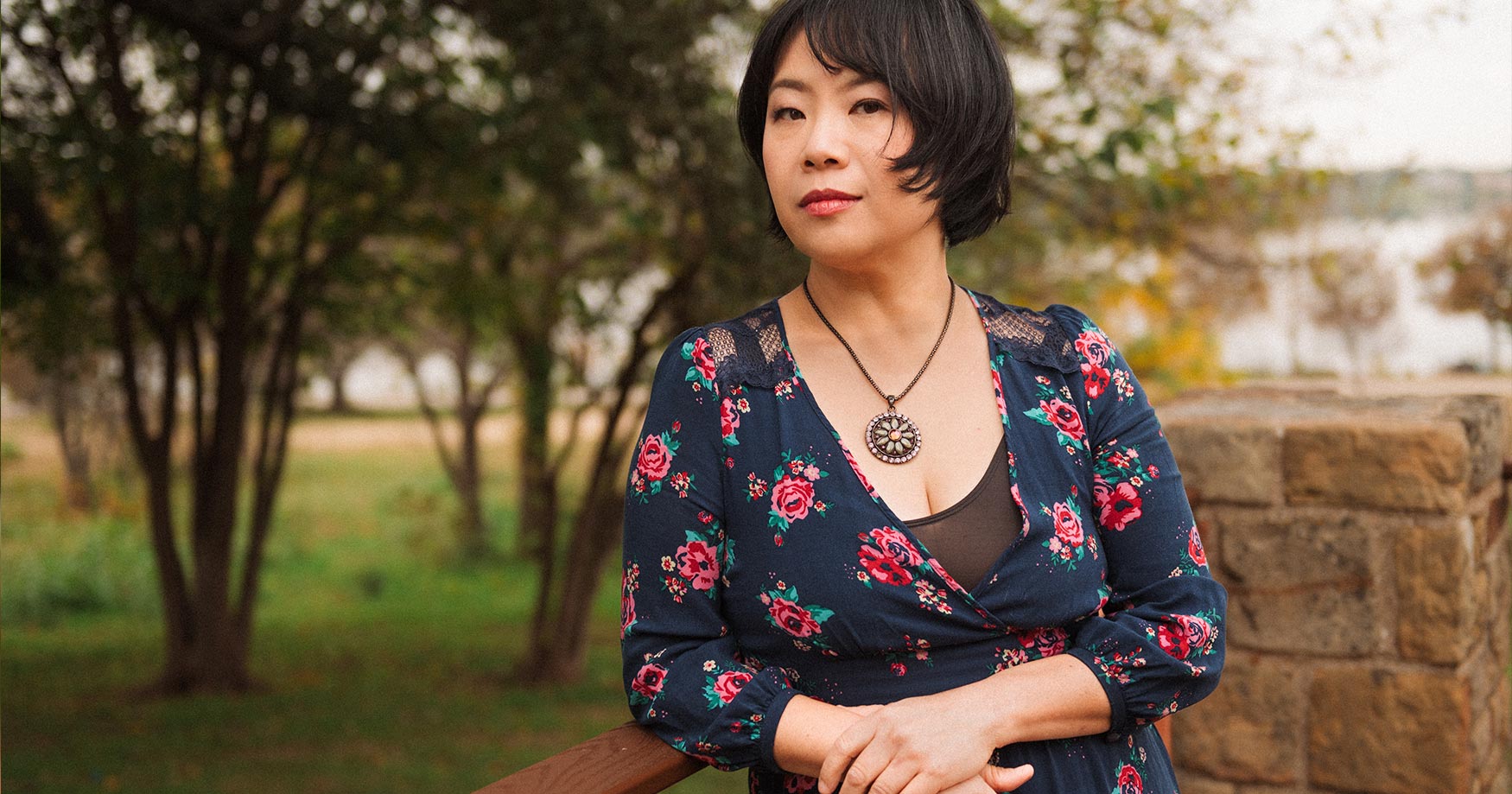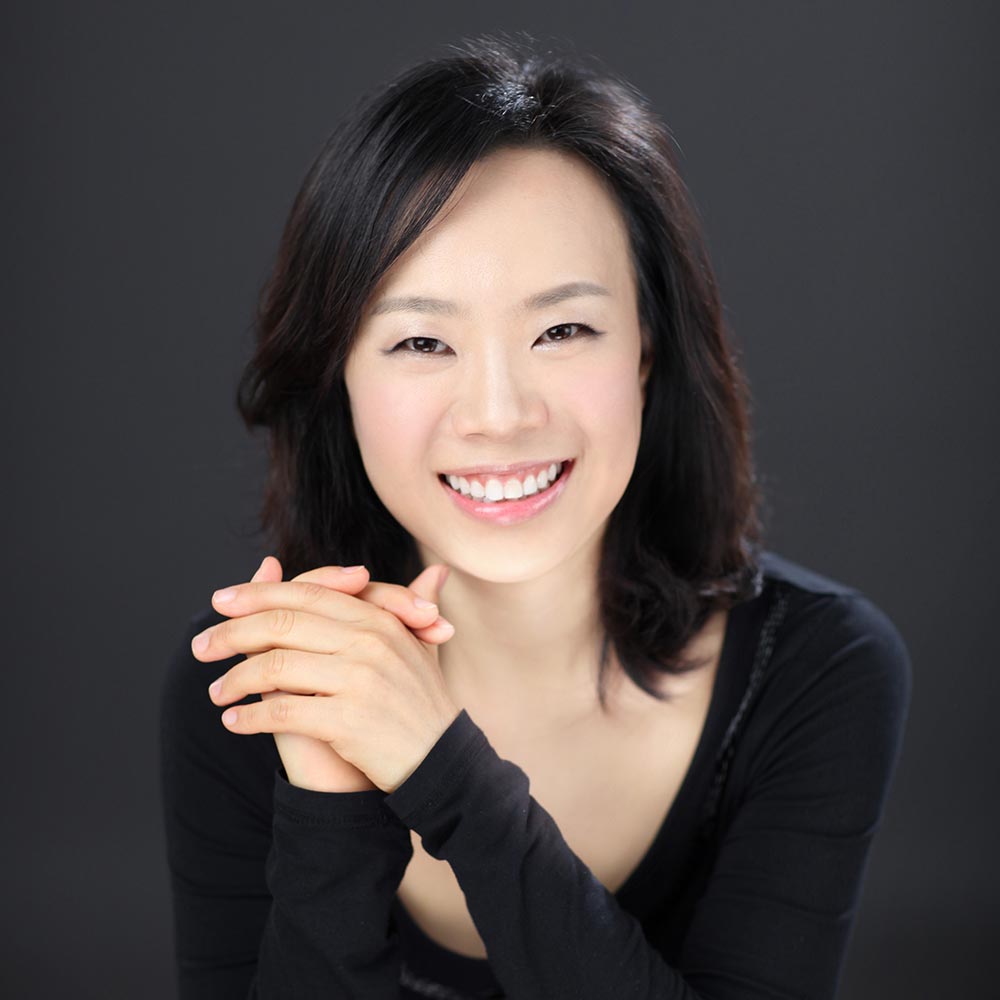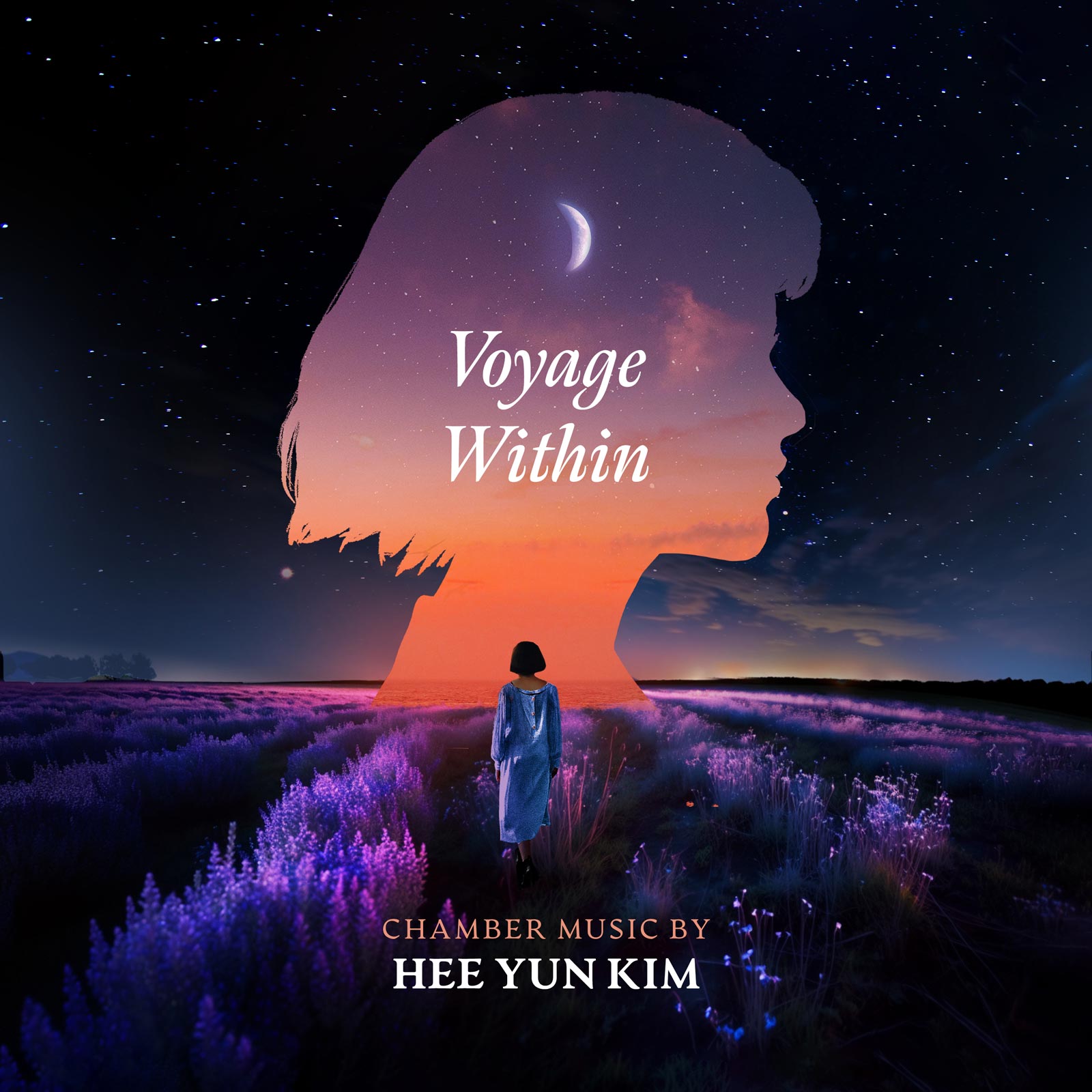
Korean-born Hee Yun Kim returns with a compelling selection of works that reflect her unwavering curiosity about social justice, Eastern philosophy, and transformative change at large on VOYAGE WITHIN. This Ravello Records release is first and foremost a journey into the self, and only second a musical exploration. Kim adeptly weaves her insights into profound and harmonious compositions, capturing the essence of her experiences and contemplations. The resulting music is both introspective and reflective, with a foresight and precision that’s almost scientific in nature.
Today, Hee Yun Kim is our featured artist in “The Inside Story,” a blog series exploring the inner workings and personalities of our composers and performers. Read on to learn about her passion for inclusivity in all aspects of life and her explorations in biking, hiking, blending her own essential oils, and more.
What were your first musical experiences?
I took several years of piano lessons on and off in early childhood. I recall I started composing songs in the fourth grade. I was often home alone after school. My older brother would come back hours later, and I was bored. So, I played and improvised on the piano, made my songs, and sang all the arias in a thick classical songbook that we had at home. In middle school, guitar became my entertainment. It was my brother’s, but he let me borrow it. I taught myself guitar, practiced for hours, and played country music. My music teacher in middle school saw musical talents from me and encouraged me to pursue singing. I went to the Seoul Art High School as a vocal major and changed my major to composition a year later. I still believe that boredom can spark creativity. My daughter used to ask me, “What am I supposed to do?” whenever I took away her iPad. I would answer “Nothing. Be bored.” I knew she would find something to entertain herself: drawing, crafting, dancing, playing instruments, singing, or reading books. And yes, she did.
If you weren’t a composer, what would you be doing?
I would love to become an astronomist or a quantum physicist — regardless of talents. Carl Sagan’s books, Cosmos and Pale Blue Dot make me humble and grateful. There are some hundred billion galaxies, each with about a hundred billion stars like the sun. Lost somewhere between immensity and eternity is our tiny planetary home. His phrase, “In the vastness of space and the immensity of time” became my mantra whenever I felt any anxiety or stress.
Schrödinger’s cat and his equation stimulates my imagination (I don’t mean that I fully understand it). Joachim-Ernst Berendt’s book, World is Sound, and his statements about the similarity between quantum physics and music inspired me to compose a piece called Quantum Musics for vocal ensemble in 2020. I am very attached to this work since I spent so much time studying quantum physics 101 and writing the text with a conclusion of “Harmony is the goal of the universe.” Its premiere was canceled due to the pandemic. Are any vocal ensembles interested in Quantum Musics?
Where and when are you at your most creative?
In my home office late at night after everyone goes to sleep. During the day, I often go to a coffee shop for a couple hours of work, escaping from piles of housework. I love to try different local coffee shops in Dallas. My current favorite is Herb’s House Coffee + Company. It is a kind of office concept, not fancy but they have big desks. Most customers work, not talk, on their laptops here.
I’m a night owl, who envies early birds for my whole life. But I haven’t given up on that yet. Weeks ago, I purchased a sunlight lamp even bigger than my laptop. So far? I am very positive. This might give me a morning miracle soon.
A creative idea often comes up on me when I’m driving or walking my dog, while mountain hiking is the best inspiration. Deadlines can be another source of creativity. If a score due is just around the corner, my brain starts to spin faster, wherever, or whenever.
If you could collaborate with anyone, who would it be?
Dr. Gabor Maté. He is a respected physician and author of best-selling books about mental health. His books and lectures helped me move forward in the right direction for understanding and healing myself. If I could have an opportunity to collaborate with Dr. Maté, I’d like to have therapy sessions with him first, and compose a monodrama based on that. Recently I had the premiere of a piece called Scattered Minds, which was inspired by his book of the same title about the origins and healing of attention deficit disorder. I definitely have some traits of it, and this book gave me new perspectives and insights on them. When I wrote the piece, I only followed the immediate flows of musical senses in the moment of creation. It was a self-discovery of subconsciousness, and a liberation of letting out something deep inside as scattered as I am. I’d like to try a similar experiment, this time for a monodrama directly collaborating with Dr. Maté.
What advice would you give to your younger self if given the chance?
The advice would be that it’s ok to be yourself, good or bad. I am talking about internal criticism. As a kid, it was so much fun to make songs and improvise on the piano and guitar. As I became a professional composer, the inner critic grew bigger, and the fun got smaller. I had a long compositional hiatus during my daughter’s early years. When I returned to composing, I badly wanted to have that fun back. Yes, now I am less judgmental in the compositional process. It is not that I am completely free from the voices like “you are not good enough,” or “are you sure you will use a TRIAD here?” But I’m better off dealing with that. The important thing is to express myself.
What are your other passions besides music?
I like biking and hiking. I blend essential oils and make DIY natural skincare products. I love a variety of cuisines — literally all around the world, the luxury we can have easily only in the States. These are enjoyment rather than passion. But there is a word that I am passionate about: Inclusive. I always wondered why we humans engaged in destructive behaviors to each other like wars, racism, and discrimination, and how we could be better in the future (it sounds a little nerdy and I accept that). I found a glimmer of hope from Yuval Harari’s book, Sapiens. We are nicer and kinder when we embrace a group of people as part of us, not them. I thought if we could expand our boundaries of “us,” we might be better to each other. I try to organize a musical event related to this subject once a year. Currently I’m planning a collaboration with a refugee support organization. In the project, participating new settlers will write poems based on their experience and feelings, and collaborative composers will make songs from the poems, culminating in a public concert. I am excited about this project — as I recognize the question, “other passions besides music,” music here is just a medium that I feel more comfortable to communicate in, and the emphasis is put on the word, inclusive.

Hee Yun Kim (b. 1971) is a composer of a wide variety of music including orchestra, chamber ensemble, chorus, and solo instruments. Her compositions have been performed by diverse ensembles across the globe, including Ensemble Calliopée, L’Orchestre de la Francophonie, University of Illinois Symphony Orchestra, Seoul Metropolitan Chorus, Dallas Asian Winds, New York New Music Ensemble, Alea III, Composers’ Ensemble of Northern New York, Juventas Ensemble, Loop 38, Euterpe Quintet, and HET trio. Her music has been reviewed as being “fully convincing” and “masterfully orchestrated” (Paris: La Lettre du Musicien).

